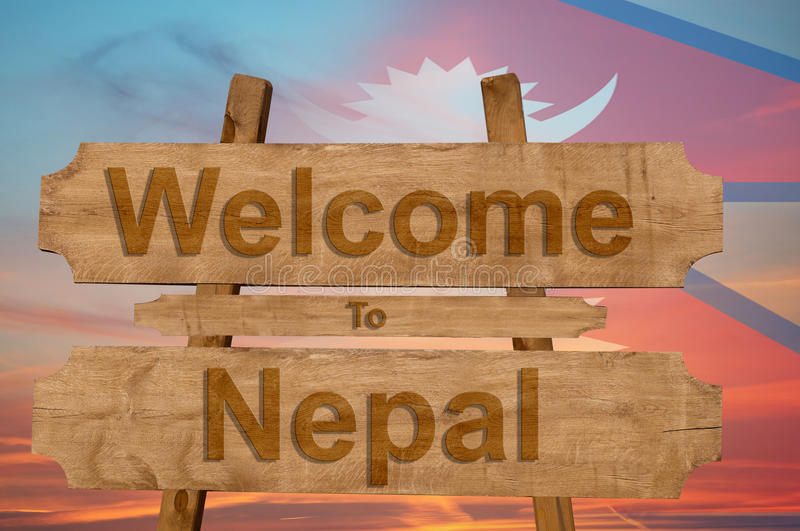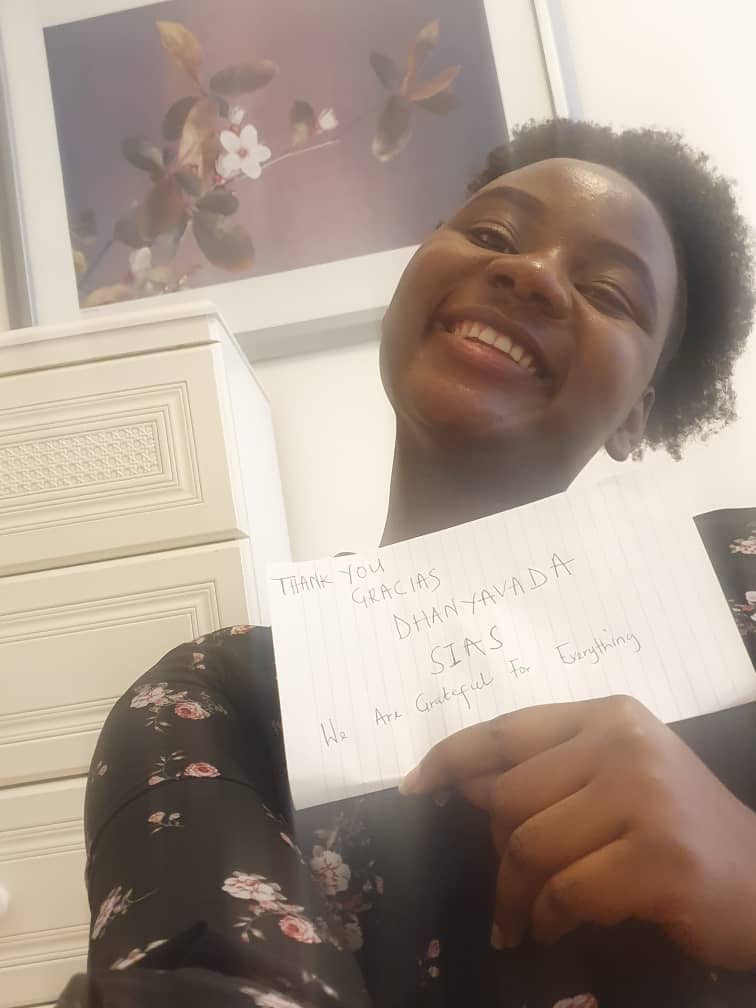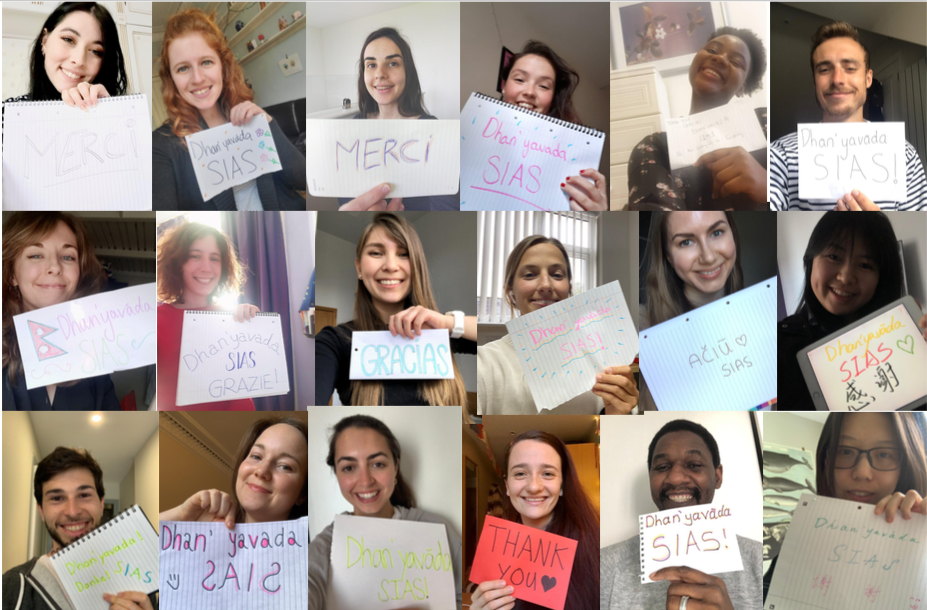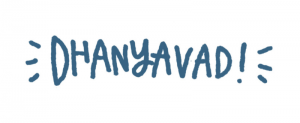Climate Smart Research: My experience and reflections from a virtual Nepal field trip

By Gifty, MSc Environment & Development

Namastey!
Doing a masters in environment and development has been a huge blessing. However, one of the best parts of it that I was looking forward to was the field trip to Nepal. The field trip was designed to give students a taste of being development practitioners, being in the field and reflecting on their positionality as it relates to “the other”.
Unfortunately, this trip was one of the dear things the pandemic took from me and I was upset for so many days. Because of the ingenuity and hard work of our program director and other university staff as well as the willingness and flexibility of our collaborators from South Asian Institute of Advanced Studies (SIAS), a virtual field trip was organised instead. My colleagues and I wondered with disappointment for days how we were supposed to learn how to be development practitioners virtually but we were consoled with the realization that a virtual field trip is better than none. And so with open minds, we started our virtual field trip on the 20th of April, 2020.
The field trip started with a brief meeting with staff and students on Microsoft teams by 9am where we learnt the itinerary for the two weeks, the readings, recordings and videos were introduced. We headed to zoom by 10am for the opening ceremony with the Nepal collaborators where we got to meet them and then we spoke about ourselves and our interests. The opening ceremony was followed by structured pre-recorded presentations, Q and A sessions by 12pm each day, independent readings and watching videos introducing environment and development issues in Nepal. There was also a section of recorded interviews of development practitioners within and beyond the University of Edinburgh where they discussed the challenges of working from afar and how they prepare to go to the field. We reconvened at 5pm every day to discuss what went well each day which was interesting, emerging themes, related themes, and daily reflections. This was the schedule for the first week where we got to listen to various presentations about gender, environmental governance, water resources and vulnerability in the Nepal context.
The second week started with the grouping of each student according to their specific interests from the first week’s lectures. We were grouped into groups of five, assigned to a University of Edinburgh staff and Nepal researchers with similar research interests. Each group got some form of secondary data from SIAS researchers and they analysed the data according to their own interests and prepared a presentation. In the second week, unlike the first week, the focus was more on individual learning and interests and so we were responsible for contextualising our research problem in the wider academic debates. This consisted of several interviews and informal discussions with our SIAS collaborators where we sought to pick their brain and learn about development practices in Nepal. Like the first week, we still had a solid structure of meeting with the big group of staff and students first thing in the morning, mid-day and in the evenings.
On the Friday of the second week, each group delivered their presentation to both the SIAS colleagues and the University of Edinburgh staff members. The questions asked and the brilliant answers given showed that we had learnt so much in two weeks. We learnt about the culture, the language, the beautiful Himalayas and the uniqueness of Nepal despite its environment and development challenges. We learnt that Nepal and other countries in the global South might have challenges, but they also are unique and have interesting cultures and traditions
.
Personal appreciation note for our Nepal collaborators on the last day of the trip
The virtual field trip ended with a closing ceremony where we gave individual speeches about how much we have learnt and how grateful we are for the experience, their time and flexibility. The closing ceremony was followed by a fun pop quiz about Nepal’s geography and culture and everyone including staff and Nepal collaborators participated.

E&D Class of 2020 vote of thanks to SIAS collaborators on the last day of the field trip.
Reflections From the Virtual Field Trip
1. Things do not often go as planned. As development practitioners, we cannot always control what happens and so practitioners need to be able and ready to adapt to changing circumstances.
2. The virtual trip may not give us the same experience as a physical trip where we could have lived with the locals, see their way of life, learnt from the trip, our interactions with the locals and their culture, however, a virtual trip is the closest we could have gotten to an actual trip. It is climate-smart and saved the earth of all the emissions from flying.
3. The best part of the trip for me is the structure. Getting up each day and meeting my colleagues and staffs on teams by 9 gave me the mental discipline I needed to be able to fully engage in this trip.
4. The recorded learning from afar interviews gave me the chance to listen and learn from the wealth of experience of development practitioners. We watched them discuss the challenges they often experience in the field and how they manoeuvre them. The lessons learnt from these interviews are currently helping me with my dissertation research as I have to work from afar with collaborators in the global South. This experience has been invaluable to me.
5. I discovered the thrill of working on development projects. I have prided myself as a natural scientist for the longest time but this experience was the turning point for me. I chose to do a gender analysis using a qualitative method for my dissertation and this has been very exciting for me.
6. As a young development practitioner, I learnt that while working in the field, learning is both ways. As we work in the field, we learn the uniqueness in people, we learn from their way of life, we learn what makes them tick and what they fancy.
I can go on and on about my virtual field trip experience, how exciting, exhilarating and eye-opening it was for me. I am very confident that the overall experience has prepared me for my dissertation and my career as a development practitioner.

Follow us on Instagram or Twitter for more updates from our Geosciences students!



